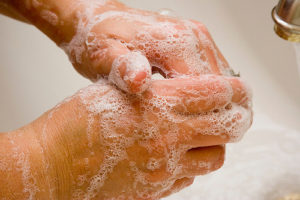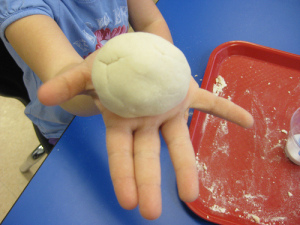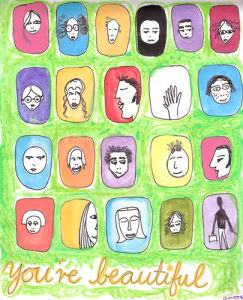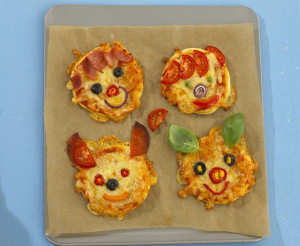Here are 10 tips to incorporate Positive Childcare into your day. These tips are written by: C. McCrory.

1. Boredom at Bay
When a child begins to get bored, their little bodies wander, and often into trouble or mischief. It is important to make sure you keep the children busy with different things to do if they cannot occupy themselves alone, or until they are able to entertain themselves. Keeping a list of quick and easy activities or games is a good idea to avoid rushing to find something to occupy little ones. If they are busy with the right activities, you’ll avoid potential misbehaviour and mess.
2. Endless Encouraging
Positivity leads to smiles, not sadness. Children look up to adults around them for approval and examples, which is why encouraging them is so important. When children do something right, well or good, make sure you awknoledge that right away. Your positive comments and encouragement will make them want to repeat that behaviour and act in a way which is pleasing to you. You will also be building their self-esteem and confidence, leading to stronger little individuals.
3. Reward not Reverse
When children take positive and appropriate actions, rewards them where needed. In contrast, do not use a reward as an encouragement to do something. The reward should be a positive surprise, not an incentive to do something. This is in fact bribing, and it is not constructive. In addition, the reward is best to be non-material, such as an shared activity, not a ‘thing’ like a toy. You want positive actions to become first nature, without them expecting anything in consequence.
4. Listen and Protect
Be attentive to what children express to you, especially if they share something that is bad, negative, scary or worrisome to them. You want to react in a positive and supportive way so that the child continue to trust you and share with you. If you have a negative reaction, this will deter the child from coming to you in the future. A strong relationship of trust can be built with children and the importance of this in their live is significant and necessary.
5. Boulder Boundaries
Boundaries are essential to a child’s development and understanding. Setting limits serves the purpose of protecting a child, helping then understand rules and creating a sense of safety. By nature, as little as they are, they will still challenge these boundaries, and it is essential that you maintain these and remain consistent in what you say. Over time, children will challenge what you say and do less and less as they better understand that you mean what you say.
6. Teaching By Example
Children may have little eyes and ears, but they still take it all in. They are constantly watching you and listening to what you say to them or others. As adults are examples to them, they will mimic certain behaviours they see you do, which is why it is so important that you behave in way you would want them to behave. Be as attentive to your own behaviour as you are to theirs.
7. Keep Calm and Carry On
Also part of “teaching by example,” you do not want to let your anger cause you to react in a way you do not want children to mimic or witness. If you are angry in a way that is affecting your thought process and behaviour, then take a step back and wait before reacting. Conversation can occur once you have regained your calm and discipline can take place once you mind is clear.
8. If at first you don’t succeed, then try, try again.
Looking after children is not easy, in fact many say it is one of the most challenging job in the world. It can, at times, be exhausting, draining, frustrating and overwhelming. The best you can do is to do the best that you can, don’t try to be perfect because no one is. Parenting and caring for children is a challenge, one that you should not be afraid to ask for help with. Whatever you do, don’t get overwhelmed, and take it one day at a time!
9. The Bright Side of Discipline
Discipline is an amazing thing that will build good, well behaved and understanding children. This is not the shouting, screaming, violent or threatening kind of discipline, this is the healthy, constructive, clear and reasoned discipline. They key is to be calm, clear and consistent(the 3 C’s of Discipline) to help children understand the reason why they are being punished, how they are being punished and that this means you care about them. Find a strategy that works for your household and carry it out when necessary, following the 3 C’s.
10. T.L.C – Tender love and care.
Some people have a natural tendency to shy away from emotions and closeness, but this is an essential element of childcare. Children need love, comfort, warmth and protection. Do not be afraid of showing this to them by playing with them, taking time for them, hugs, kind words and holding their hand. Be aware and attentive of their emotional needs and do your best to meet them.





 We live in a time of constant sharing through social media. We often share pictures, plans of somewhere we are going or rants about problems, without thinking much about who will see it and what could be the consequences.
We live in a time of constant sharing through social media. We often share pictures, plans of somewhere we are going or rants about problems, without thinking much about who will see it and what could be the consequences. Make your own play dough! –Play dough is the perfect modeling material for children. Their small hands can pat, poke, pinch, roll and knead it into many shapes. Keep it in an airtight container to use another day, or let it air dry into favorite shapes.
Make your own play dough! –Play dough is the perfect modeling material for children. Their small hands can pat, poke, pinch, roll and knead it into many shapes. Keep it in an airtight container to use another day, or let it air dry into favorite shapes. Today is a great opportunity to say something positive about the people you come into contact with ~ tell a stranger you like his tie, or her nail polish color. Make sure you are sincere and smile.
Today is a great opportunity to say something positive about the people you come into contact with ~ tell a stranger you like his tie, or her nail polish color. Make sure you are sincere and smile.

 Click here to get the recipe for Animal Face Pizzas on Annabel Karmel’s Blog
Click here to get the recipe for Animal Face Pizzas on Annabel Karmel’s Blog